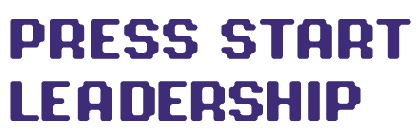Opinion: The Remote Paradigm
This blog post originally appeared on Protagonist
Tony Stark once said “Following’s not really my style.” As we have seen in the months leading up to this post, a large portion of the workforce is thinking along the same lines.
As of the writing of this post the world is tentatively reopening, people are being allowed back into offices and around other people in general (Gasp!). When the world was forced to work remotely (where able) in early 2020, many people who had never experienced that circumstance discovered they liked it. Here are a few reasons why:
- No commute: less stress/anxiety/general life problems like dealing with road construction, weather, car issues, ass-hats who think they drive better than you, etc.
- More flexibility: fifteen minutes between meetings? Toss in a load of laundry or do something else that would have been put off until the weekend.
- More time: Without a commute or the requirement to be at a desk at an office even when there’s nothing to do, people have been able to spend time doing MORE overall.
Here are my thoughts on remote work in general and why it is important to both individuals and organizations to continue to let people work remotely in as much of a capacity as possible.
Working remotely should not be a single leader’s choice:
In fact, the choice should not belong to just the leadership team. Everyone should be involved in deciding what the remote work rules are. Want to know why people jump ship and leave companies in huge droves? Often it is because leadership is making mandates that are very misaligned with the desires of their workforce.
Your company/team needs to have remote work available to everyone by default:
As I noted above there are many benefits for everyone who works remotely. There are broader benefits for the organization as well. You can reduce your office size which means less rent/mortgage, energy use, security needs, and many others. There are numerous benefits that others have detailed. (See these articles on Business.com & Forbes)
Hybrid arrangements need to be structured:
Humans are creatures of habit, whether we think we are or not. When something can be counted on to happen at a specific day/time stress levels drop. If your whole team comes to the conclusion that having a certain amount of time in the office each week is beneficial, come to a consensus on what that looks like. This will make scheduling meetings and other company events a whole lot easier.
Be open to imperfection:
As with anything, few people get changes of this magnitude “right” on the first try. I would argue that nobody gets it “right” on the first try because the definition of “right” is completely subjective. Approach changes in your company as experiments and avoid strict language that makes it sound like the changes are going to be written in stone upon a mountainside somewhere. Change management and planning is very important and can benefit hugely from an outside perspective or two.
Remember that your leadership is built on the three interdependent pillars of trust, communication, and systems. Keep that in mind as you navigate through any changes large or small and do your best to keep a balance between the three. In so doing you will excel as a leader and be seen as a good example and thought leader.
In the same vein, if you want an outside perspective on how to approach these scary, game-changing shifts the Protagonist team is here to help. We will bring insight and expertise to bear that will help you make the right decisions for your team. Click here to drop us a note!
There you have Opinion: The Remote Paradigm. If you enjoyed this article be sure to check out more of Adam Kobler’s thoughts at Protagonist! Also don’t miss my conversation with Adam on my Podcast or YouTube.


